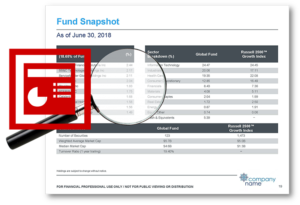How automation improves sales and marketing alignment
Despite having the same end goal, marketers and sales departments tend to be in conflict because their short-term objectives differ. Marketers are focused on creating campaigns that will generate new leads, and sales teams concentrate on making sales. In a controversial article for CBS News about why sales teams get annoyed by their marketing colleagues, industry expert Geoffrey James lists several top frustrations for sales reps, including:
- Marketers focus too heavily on deliverables, even if they are not actually helping to land sales.
- As a result, a significant amount of marketing-generated content isn’t used by salespeople.
- Marketers waste money on campaigns.
- Their leads are weak.
Of course, there are frustrations coming from the other side, as well. For instance, in well-functioning companies, marketers tend to feel they don’t get enough credit for sales that go through.
One way around these arguments is to create new goals for marketing teams. Instead of being focused on creating materials, they need to achieve a greater customer focus. To do this, they need to collaborate more closely with sales teams. Another way to look at it, according to B2B Marketing Insider, is to think about sales as the customer, which may get them closer to creating materials that work more effectively.
How better technology can help
Many common sales frustrations can be eliminated with automation relatively easily, as long as it’s the right solution. According to Clickz, the proliferation of various software solutions can lead to siloed data, which makes it even harder for colleagues to communicate. Luckily, it’s now possible to find platforms that make integration possible.
For instance, if one of your main concerns is that marketers focus too much on documents that aren’t landing sales, increased visibility in the marketing process is one simple solution to this problem. Find a cloud-based document automation platform that allows sales and marketing teams to collaborate more effectively. Rather than encouraging marketers to adopt new standards for their materials by fully immersing themselves in the salesperson’s world, companies can leverage the unique expertise of both sides and create a new approach entirely.
This is also related to the perception that marketing wastes money on campaigns that don’t work. As CRM and marketing automation platforms become more sophisticated, marketers have increasing evidence of what is working and what isn’t, meaning they can more carefully hone their strategies. Since marketers can demonstrate return on investment more easily, they are less likely to be perceived as wasting resources, and can better establish their department as a vital part of the sales process.








 Compare the Top 3 Finserv Content Automation Vendors [White paper]
Compare the Top 3 Finserv Content Automation Vendors [White paper] Create Pitchbooks the Drive Sales [White paper]
Create Pitchbooks the Drive Sales [White paper] Build vs. Buy: Should Your Financial Services Firm Outsource or Insource Marketing Technology? [White paper]
Build vs. Buy: Should Your Financial Services Firm Outsource or Insource Marketing Technology? [White paper]  10 Tips for Rebranding your Fund Marketing Documents [White paper]
10 Tips for Rebranding your Fund Marketing Documents [White paper]

